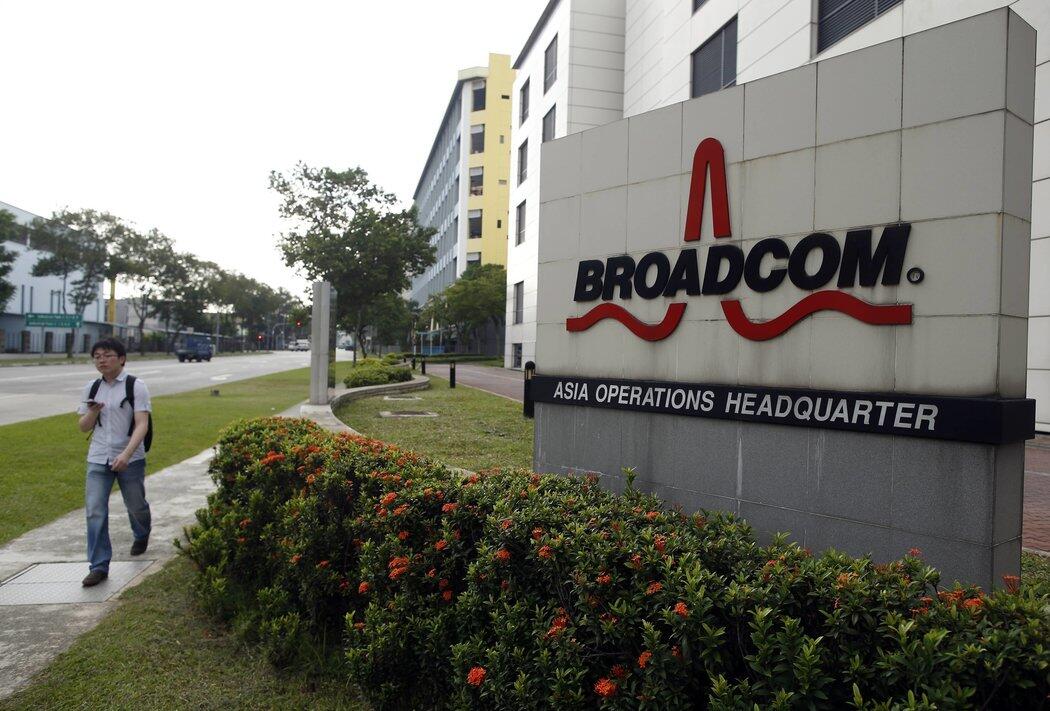Broadcom’s Qualcomm Bid Under Scrutiny
Article By : Rick Merritt

CFIUS lists concerns over defense contracts, among others, in list of concerns
SAN JOSE, Calif. — A letter from a U.S. government agency casts a shadow over Broadcom’s hostile takeover bid for Qualcomm, saying that it “could pose a risk to the national security of the United States.”
The letter from the Committee on Foreign Investment in the U.S. (CFIUS) lays out a case why the acquisition could threaten the U.S. position in wireless communications standards, patents, and products — potentially to the benefit of China. It was dated March 5 and addressed to attorneys from both companies.
The letter came along with an order from CFIUS. It requires Qualcomm to delay by 30 days a shareholder meeting on a proxy vote on rival board candidates. In addition, it prevents either company from “taking any action” toward the merger while an investigation is in progress.
The order also requires Broadcom to give CFIUS five days of written notice before taking any action on the move of its headquarters to the U.S. In addition, it orders both companies to provide weekly updates of their actions to comply with the order.
In early November, Broadcom CEO Hock Tan met with President Trump to announce that the company’s headquarters will move from Singapore to the U.S., a process that Broadcom later said could be complete by May 6. However, Qualcomm submitted a request for review of the acquisition to CFIUS on Jan. 29.
That letter triggered “multiple phone calls, emails, and meetings” with CFIUS and representatives of the two companies. Indeed, while the two companies were undergoing a heated public battle for the hearts and minds of investors, they also were engaged in an equally intense battle to make their case with the inter-agency group of regulators.
“As a result of these communications … CFIUS has come to believe that Broadcom’s successful takeover attempt of Qualcomm … could pose a risk to the national security of the United States,” said Aimen N. Mir, a deputy assistant secretary with the Department of Treasury who signed the letter.
CFIUS lays out what it will investigate
The letter lays out a case that, in part, points to concerns about China as well as risks associated with “Broadcom’s relationships with [unnamed] third-party foreign entities.”
CFIUS will conduct an investigation, at least part of which will remain classified. The unclassified aspects that the letter detailed included concerns that the U.S. could lose standing in 5G cellular technology and standards and a supply of trusted semiconductors to classified Department of Defense programs.
“A weakening of Qualcomm’s position would leave an opening for China to expand its influence in the 5G standards-setting process … For example, Huawei has increased its R&D expenditures and owns about 10% of essential 5G patents,” although the U.S. still dominates in 5G patents, it said.
The letter cited long-standing concerns about the security of Huawei and ZTE as telecom equipment providers. It also noted Broadcom’s practice of spending more on acquiring companies than on internal R&D.
Broadcom has lined up $106 billion in debt financing to cover the acquisition, “the largest corporate acquisition loan on record,” it said, adding that this would put intense pressure on Broadcom to trim R&D expenses.
The letter also cited Broadcom’s unspecified plans for changing Qualcomm’s licensing practices that have come under fire from regulators around the world as well as Apple, one of Qualcomm’s largest customers.
In terms of products, “Qualcomm currently holds active sole source classified prime contracts” with the Department of Defense, it said.
The CFIUS investigation aims to explore all of these issues. Just what conclusion it will reach and whether President Trump will weigh in remains to be seen.
The dispute comes at a time when Trump has already launched a volley in what some say could be a trade war against rivals such as China over aluminum and steel. Meanwhile, China’s government is raising tens of billions to expand its semiconductor industry, and it is poised to waive term limits for its president, Xi Jinping.
For now, the biggest proposed acquisition in semiconductor history has more than investors to win over.
— Rick Merritt, Silicon Valley Bureau Chief, EE Times
Subscribe to Newsletter
Test Qr code text s ss



